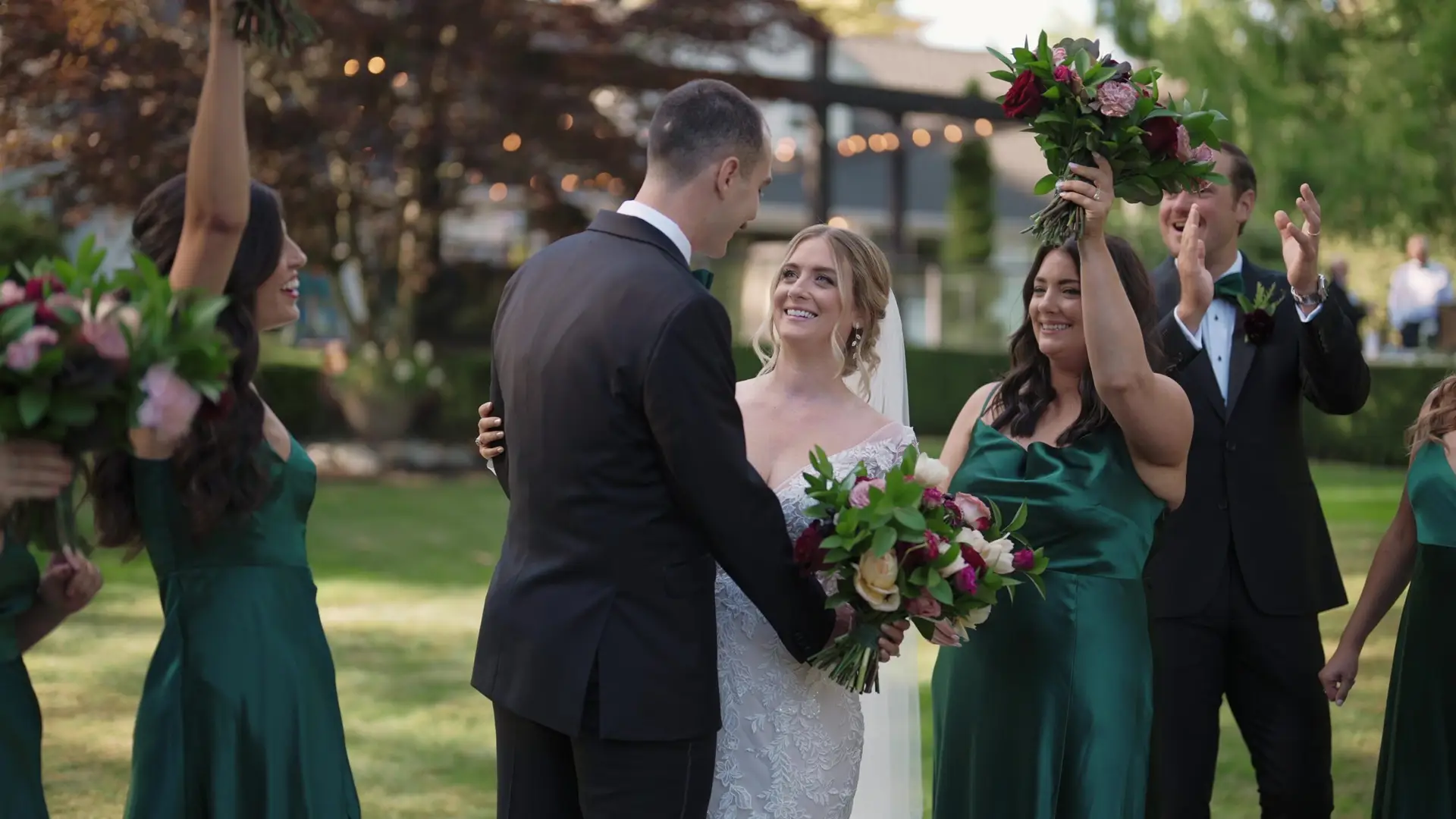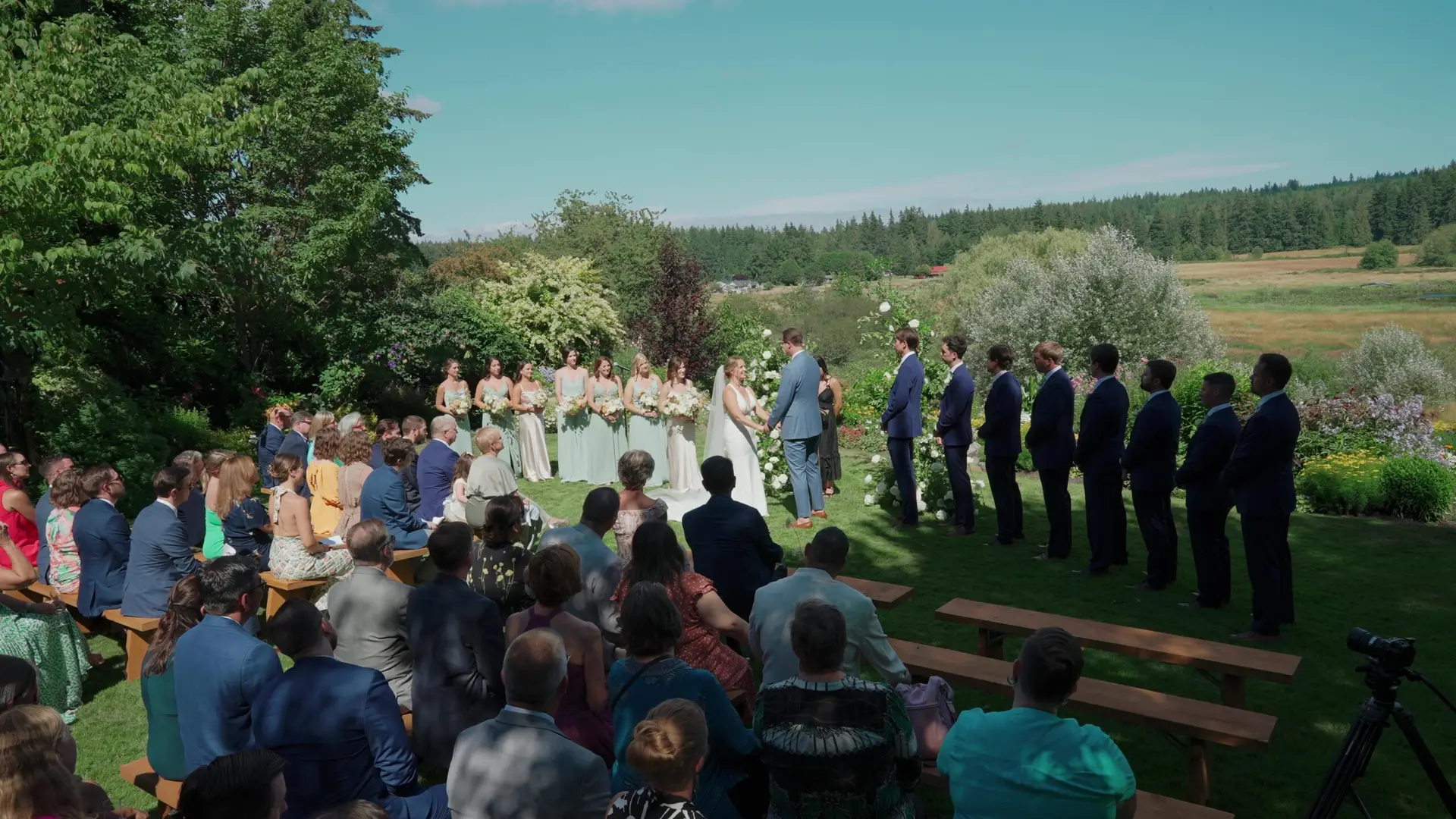How Much Does Wedding Photography Cost in Oregon and Washington?
An Oregon vineyard wedding at sunset. Professional photographers often travel across scenic venues in Oregon and Washington to capture moments like this.
Planning a wedding in the Pacific Northwest involves juggling many details – from venues and menus to dresses and décor – but one question looms large for many brides and grooms: How much does a wedding photographer cost? As an engaged couple investing heart and soul into a beautiful Portland, Seattle, or Bend celebration, you want stunning wedding photos that capture your big day perfectly. Yet you’re also mindful of your wedding budget and value. In this comprehensive guide, we’ll break down how much a wedding photographer costs in Oregon and Washington, what factors influence wedding photography pricing, and how to budget wisely at every price tier. Our tone is warm, down-to-earth, and respectful of your intelligence – because we know you’ve done your homework and deserve honest, clear answers. Let’s explore the real numbers and nuanced details behind wedding photography rates in the Pacific Northwest, from the most affordable options to the luxurious elite.
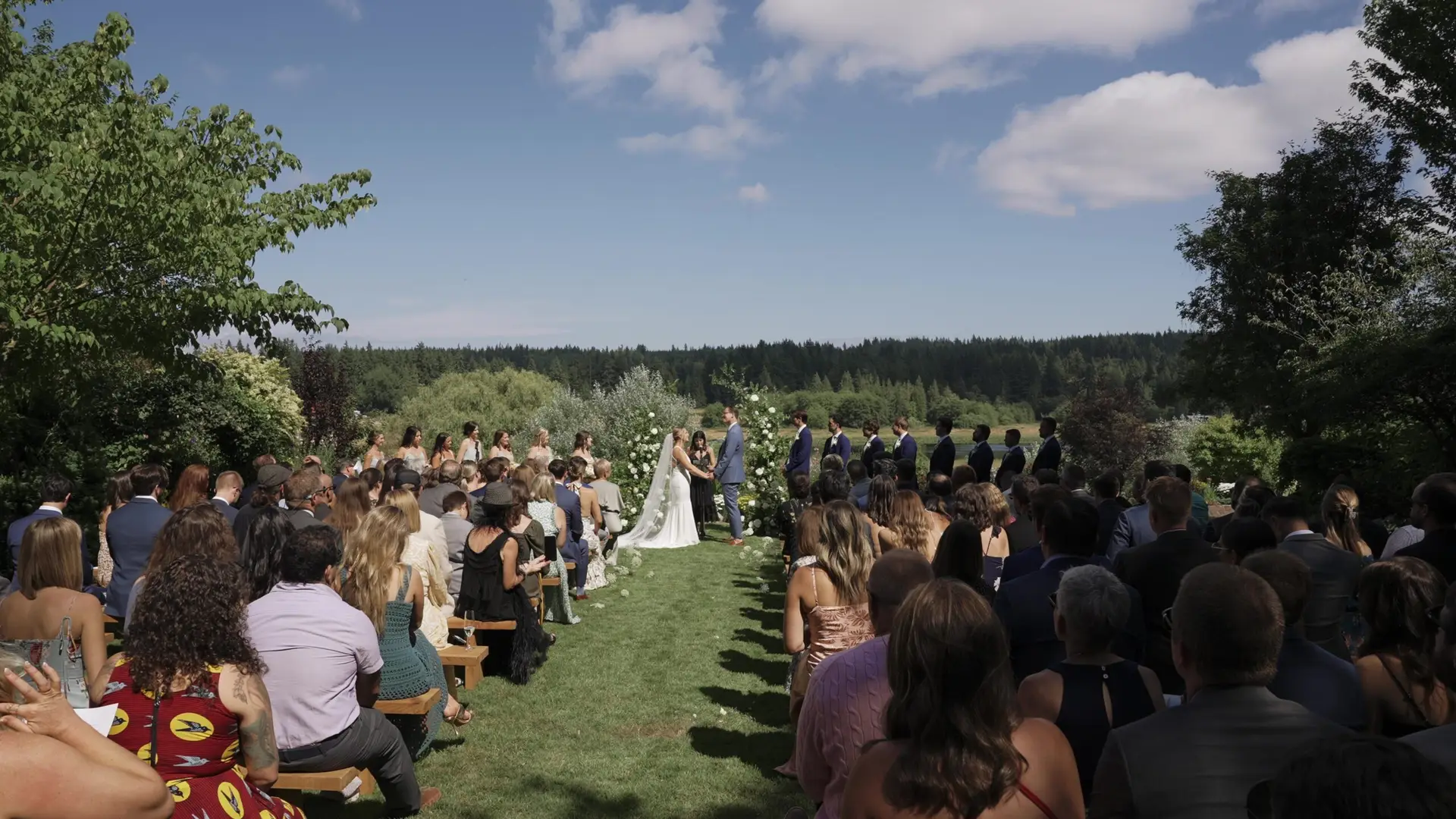
The Average Wedding Photographer Cost in Oregon & Washington
One of the first big questions couples ask is, “How much does a wedding photographer cost?” The answer varies widely based on many factors including a photographer’s experience, what’s included in wedding photography packages, and your location. Nationally, wedding photography runs about $3,500 to $5,300 for a typical package (the average price is around $4,400). In practice, a professional wedding photographer usually charges anywhere from $2,500 up to $15,000 or more for full-day photography coverage in the U.S.
Here in Oregon and Washington, prices align with those national trends – with an extra influence from our local cost of living and demand. In Oregon (think Portland and scenic destinations like Bend), you can expect to pay roughly $3,000 to $7,000 for a seasoned photographer offering full-day coverage and high-quality service. Seattle and the Puget Sound area, being larger and pricier markets, often skew to the higher end; it’s not uncommon for experienced Seattle wedding photographers to quote $5,000 to $9,000 for popular packages, with truly high-end Seattle studios ranging from around $8,000 up to $15,000+ for extensive coverage. For example, one Seattle photography company notes that seasoned pros in the city charge about $5,000 to $15,000 depending on coverage, crew, and deliverables. Meanwhile, many mid-range Oregon photographers fall somewhere in the middle of these ranges, often between about $3,500 and $5,500 for an 8-hour package in places like Portland.
Of course, these packages range broadly. What you’ll actually pay depends on your needs and the specific photographer. To give you clarity, let’s unpack why wedding photography carries these price tags – and exactly what you’re paying for when you invest in a wedding photographer in the Pacific Northwest.
What Are You Paying For? – Understanding Wedding Photography Pricing and Coverage
When you see a quote for $2,000 or $5,000 (or $10,000!) for wedding photography, it’s natural to wonder how on earth a few hours of shooting can cost that much. The key is to realize that you’re not just paying for one day of work – you’re investing in an entire planning process, a professional’s expertise, and heirloom images that will last a lifetime. Here’s a breakdown of what goes into wedding photography costs and why they add up:
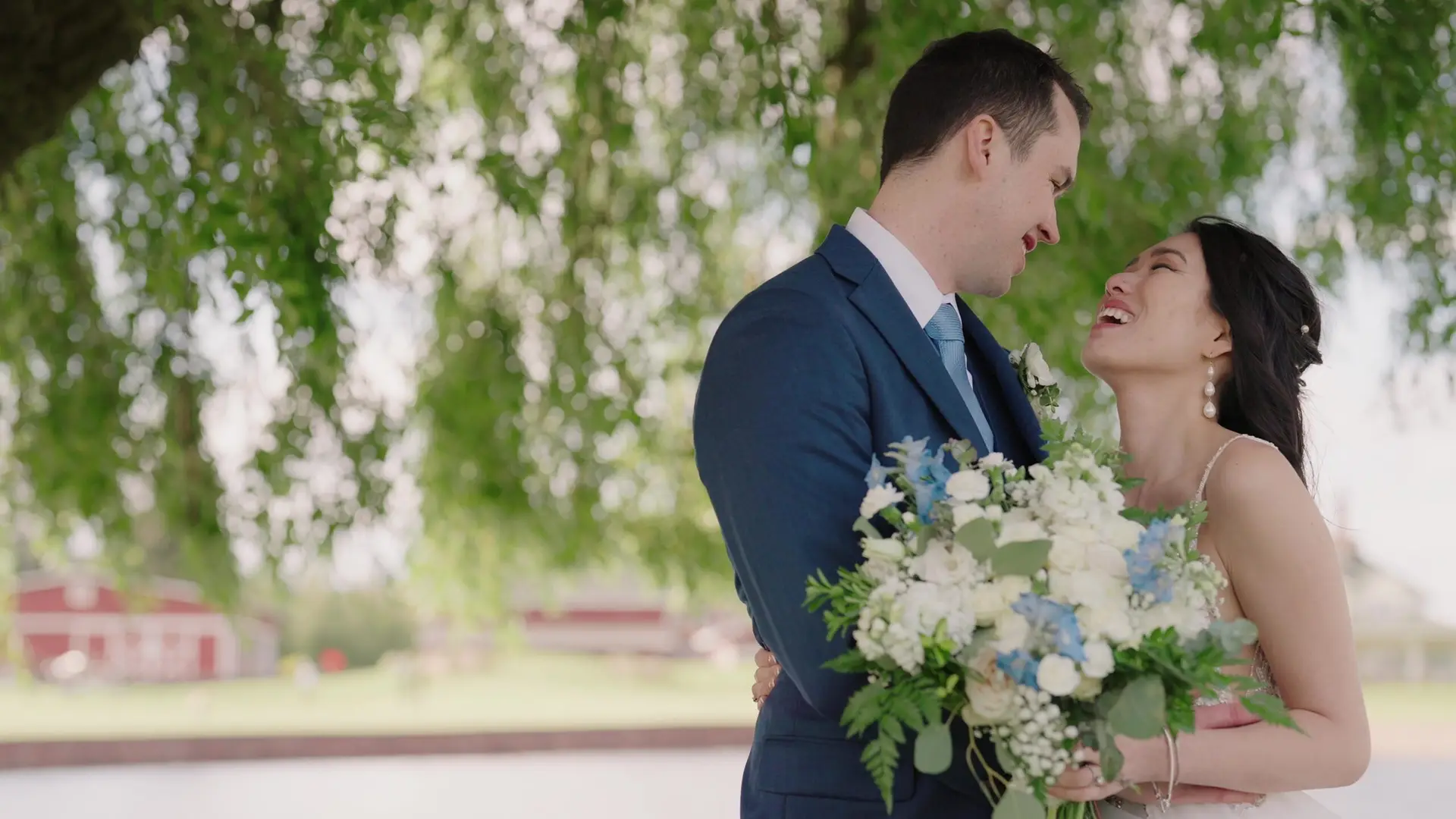
Hours of Photography Coverage on Your Wedding Day
First and foremost, the fee covers the photographer’s time shooting on the wedding day – typically anywhere from a short 2-hour elopement up to 8, 10, or 12+ hours for a full day affair. More hours = higher cost. Most standard packages include around six hours to eight hours of coverage (enough for getting ready through most of the reception). If you have multiple events or a longer day, extra hours will bump the total price (often at a set hourly rate). For instance, our own studio charges $450 per hour of on-site coverage (which includes all the editing and retouching afterward), so an 8-hour package comes out to $3,600. This kind of transparent hourly rate helps couples customize coverage to their needs. Keep in mind that if you want multi-day coverage (say, a multi-event Indian wedding or a day-after shoot), that will typically be a custom quote on the higher end.
Pre-Wedding Consultations and Planning
Long before the camera comes out, your photographer is often working with you on timelines, shot lists, and logistics. Many will meet or video chat with you to understand your vision, create a photography timeline, and even scout venues. This preparation ensures your day goes smoothly and that they capture the emotional moments that matter most to you. Though these consultations aren’t always itemized as a cost, they’re part of the service and time commitment included in the fee.
Professional Editing & Retouching
Here’s a big one that couples don’t always see behind the scenes – for every hour shooting, a photographer can spend 2-5+ hours editing and retouching the images afterward. After your wedding day, they’ll sort through (cull) thousands of shots, select the best, and perform color correction, exposure adjustments, and artistic edits on each delivered photo. If removal of blemishes or distractions (like exit signs on a wall) is needed, they handle that in retouching. This post-production work is very time-intensive and requires skill. It’s not unusual for a photographer to dedicate several full days of editing for one wedding. All those hours are built into the price you pay. In short, you’re not paying just for the 8 hours on the wedding – you’re often paying for a 40+ hour project that includes both shooting and editing your images to perfection.
Experience, Skill & Creativity
A huge part of the cost is the expertise of the photographer. Wedding photography is not an easy job – it requires an eye for storytelling, lighting skills, posing guidance, and the ability to stay calm and creative under time pressure. More experienced photographers (with, say, 100+ weddings under their belt or a strong reputation) understandably charge more than a newcomer. You’re paying for their years of learning how to handle dim church lighting or a sudden rainstorm at your outdoor ceremony. An experienced pro anticipates moments (the tear on Dad’s cheek as he gives you away, or the exact second to capture that dip-and-kiss on the dance floor) that less seasoned folks might miss. In the luxury market, you’re often also paying for a recognized style or brand name – a photographer known for editorial-quality, fine art images or one who’s in high demand will price accordingly because their work is unparalleled. As one industry survey noted, quality, services, demand, and location all influence why some photographers charge more. In short, when you invest in a highly skilled photographer, you’re paying for peace of mind that your images will turn out gorgeous no matter what.
Assistants or Second Shooters
Many wedding photographers work with a second shooter or assistant, especially for larger weddings. A second shooter is essentially a second photographer capturing additional angles (for example, one photographer focuses on the bride walking down the aisle while the other catches the groom’s reaction). Having two wedding photographers ensures more coverage and different perspectives – but it also increases cost. Some packages include a second shooter, others offer it as an add-on. If not included, a second shooter might cost an extra $50–$150 per hour. In our region, many mid-range and high-end packages include a second shooter in the price; budget packages typically do not.
Travel & Logistics
Oregon and Washington boast varied wedding locales – a mountaintop in Bend, a seaside elopement on the Oregon coast, an urban celebration in downtown Seattle, a farm outside Spokane, you name it. If your photographer has to travel a significant distance, there may be added fees for mileage, airfare, or lodging accommodations. Most photographers have a “service area” and will charge extra if your venue is beyond that. For example, a Portland-based photographer shooting a wedding in Bend or Hood River may add a travel fee or require a night’s hotel. Always ask about travel costs if you’re getting married far from your photographer’s home base. These fees simply cover gas, hotel, airfare, or even the extra time spent on the road.
Equipment & Overhead
Behind those beautiful photos is some serious gear. Professional cameras, a variety of lenses, flashes, memory cards, batteries – a single camera+lens setup can be thousands of dollars, and your photographer likely brings two or three cameras (they need backups in case of technical issues). They also invest in high-powered computers and software for editing, and secure backup systems to protect your images. Don’t forget business overhead like insurance (reputable photographers carry liability insurance and gear insurance), advertising, website costs, etc. While you’re not paying these as line items, a portion of every photography fee helps the photographer maintain their business and equipment at a professional level. In other words, part of what you pay is to ensure they have the right tools and safeguards to deliver your photos reliably.
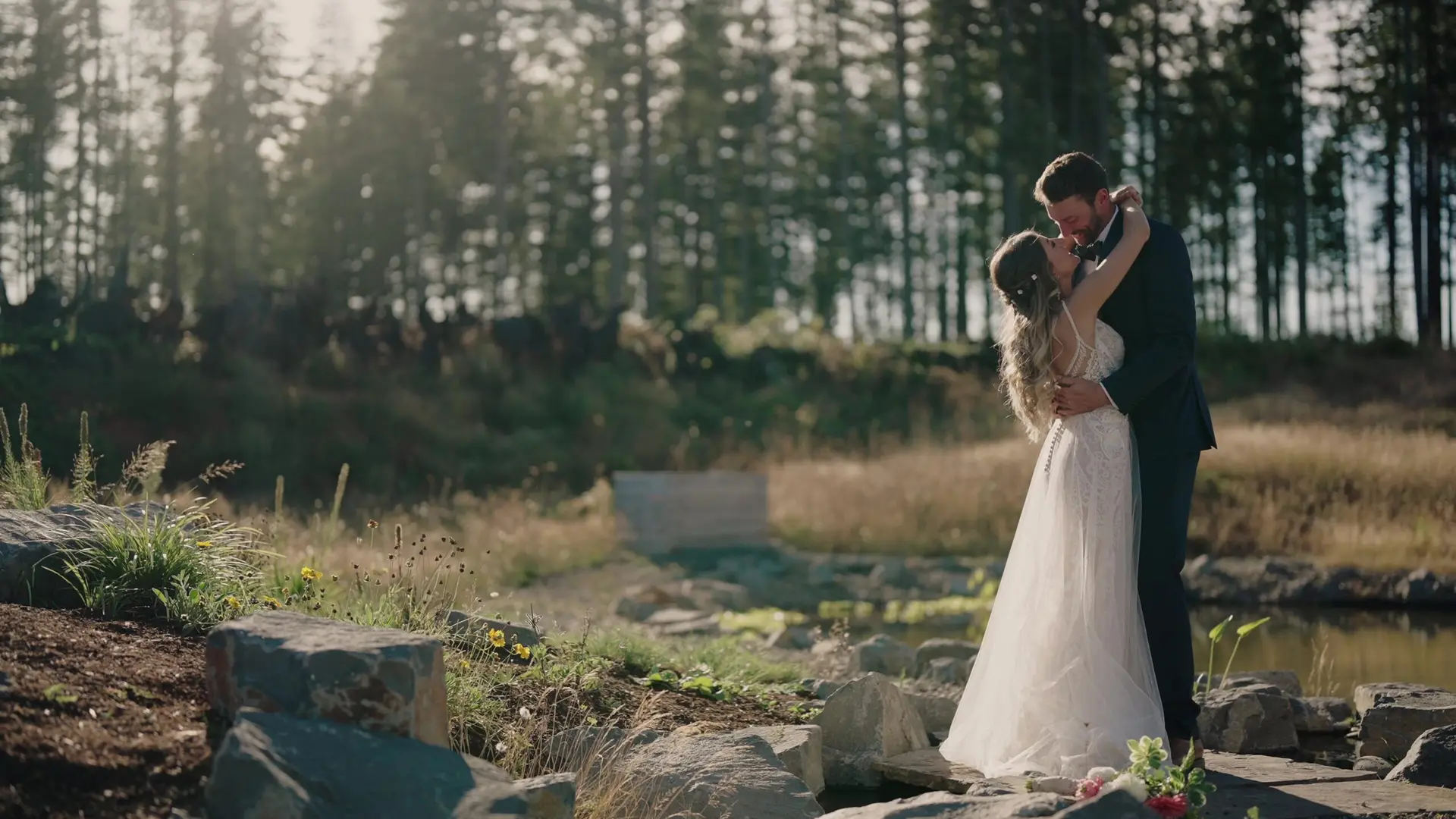
Digital Files, Albums & Rights
What you receive after the wedding can also impact cost. Most packages today include high-resolution digital images delivered via an online gallery or USB drive. Crucially, many photographers include printing rights – meaning you have permission to download and make prints of your photos for personal use. (Always clarify this! You want to be sure you can print your photos freely or share them.) Some lower-priced offerings might only include lower-resolution files or a limited selection of images unless you pay more. Physical products like albums or prints are often add-ons: a handcrafted wedding album can easily add $500 or more to a package, reflecting the cost of design and printing. Similarly, if you want canvases or parent albums for family members, those will be extra. The great news is that our studio includes full download and printing rights with every package, so you won’t be hit with surprise fees to access your own photos. We believe in that all-inclusive approach for transparency. Not every photographer does, so always check if things like the digital gallery, a certain number of edited images, or print rights are included.
Specialty Add-Ons (e.g., Film Photography)
If you’re dreaming of a particular style or extra service, those can affect wedding photography rates as well. For example, film photography has made a nostalgic comeback – some couples love the look of a few film shots in addition to digital. Because shooting real film is expensive (the rolls of film and developing/scanning cost money, and it’s more labor-intensive), photographers typically charge a premium for a film add-on. One Seattle studio, for instance, charges $100 per roll of film with a 10-roll minimum for clients who want part of their wedding captured on old-school film. That’s a $1,000 add-on for 10 rolls, yielding maybe a few hundred film images. Other special add-ons could include drone photography (aerial shots), same-day slideshow edits (to display photos during your reception), or videography if the photographer’s team offers it. All these extras come with their own fees. The upside is they are optional – you can decide what matters most to you and your wedding budget.
Payment Terms: Deposit and Remaining Balance
Most photographers require a deposit at booking to secure your date, often around 20-50% of the total cost. The remaining balance is usually due several weeks before the wedding day. Understanding these payment terms early helps couples plan their wedding budget and avoid surprises.
As you can see, a lot goes into a wedding photography package beyond just “show up and shoot for a day.” When you pay a photographer, you’re buying hours of shooting + many more hours of editing, plus their years of experience, artistic vision, professional gear, and often some beautiful deliverables. Now that we’ve covered what you’re paying for, let’s look at how much you can expect to pay at different budget levels. Not all photographers charge equal rates – you’ll find everything from a $500 newbie to a $10,000 celebrity shooter. The key is finding the right wedding photographer fit for your budget and your expectations.
Wedding Photography Packages and Price Tiers – From Budget to Luxury
Wedding photographers in Oregon and Washington span a wide spectrum of price points. Below, we break down realistic wedding photography packages range and price tiers, from inexpensive options (under $1,000) to ultra-luxury ($8,000 and up). We’ll describe what each tier typically offers and who it might be right for. Remember, prices can fluctuate, but these ranges will give you a grounded sense of the market:
Inexpensive / Hobbyist Photographers (Under $1,000)
This is the ultra-budget end of the spectrum. Finding a wedding photographer under $1k is challenging but not impossible – it usually means hiring someone who is very new to weddings, a student or hobbyist, or limiting coverage hours significantly. For example, you might find a photography student at the University of Oregon or a talented amateur on Craigslist who will shoot your wedding for $500–$800 to build their portfolio.
What to expect: At this price, you’re likely getting a few hours of coverage (perhaps just the ceremony and portraits), with basic edited digital photos. The person may not have much wedding experience, so there’s some risk involved – they could miss shots or be unprepared for tricky lighting situations. They likely won’t have a second shooter or high-end backup equipment. Delivery might take longer (since they may be juggling another job or classes), and the consistency/quality of images may vary.
Where to look: Consider reaching out to local photography schools or university art departments for students, posting on community boards, or even asking friends if they know a passionate amateur.
Honest truth: If your wedding budget is under $1,000, manage your expectations. You might get some lovely photos, but you probably won’t get the comprehensive coverage or polished style that a more seasoned pro could deliver. Many couples on tight budgets still find someone to capture the essentials – just be aware that at this tier, it’s a bit of a leap of faith. (Tip: Always view a sample gallery of their work to ensure their style and skill are something you’re comfortable with, and have a clear agreement on hours and deliverables.)
Budget-Friendly Emerging Photographers ($1,000 – $3,000)
In this range, you’ll find entry-level professionals and some part-timers or newer full-time photographers. These are folks who likely have shot a number of weddings and charge a modest rate as they continue to gain experience.
What to expect: Packages around $1,500–$2,500 often include 4-6 hours of coverage or a simpler 8-hour package with fewer frills. The photographer should have a decent portfolio and some good reviews, but they may not offer a lot of extras. You might not get an engagement session included (though some will include one even at this range), and a second shooter is typically not included unless you pay a bit extra. Editing will be done, but perhaps not extensive retouching beyond the basics. Photographers in this tier may still be honing their style or might be excellent artists who just haven’t raised their prices yet.
You can certainly get beautiful photos with an emerging photographer – just be sure to vet them: ask how many weddings they’ve shot, and possibly talk to a past client. At $2,000 or $3,000, many newer Portland or Seattle photographers deliver quite a lot of value, often covering a full day and providing all images digitally. They may just lack the name recognition or 10+ years of experience that higher-priced photographers boast. If you’re on a moderate budget, this tier is often the sweet spot between affordability and quality for many couples.
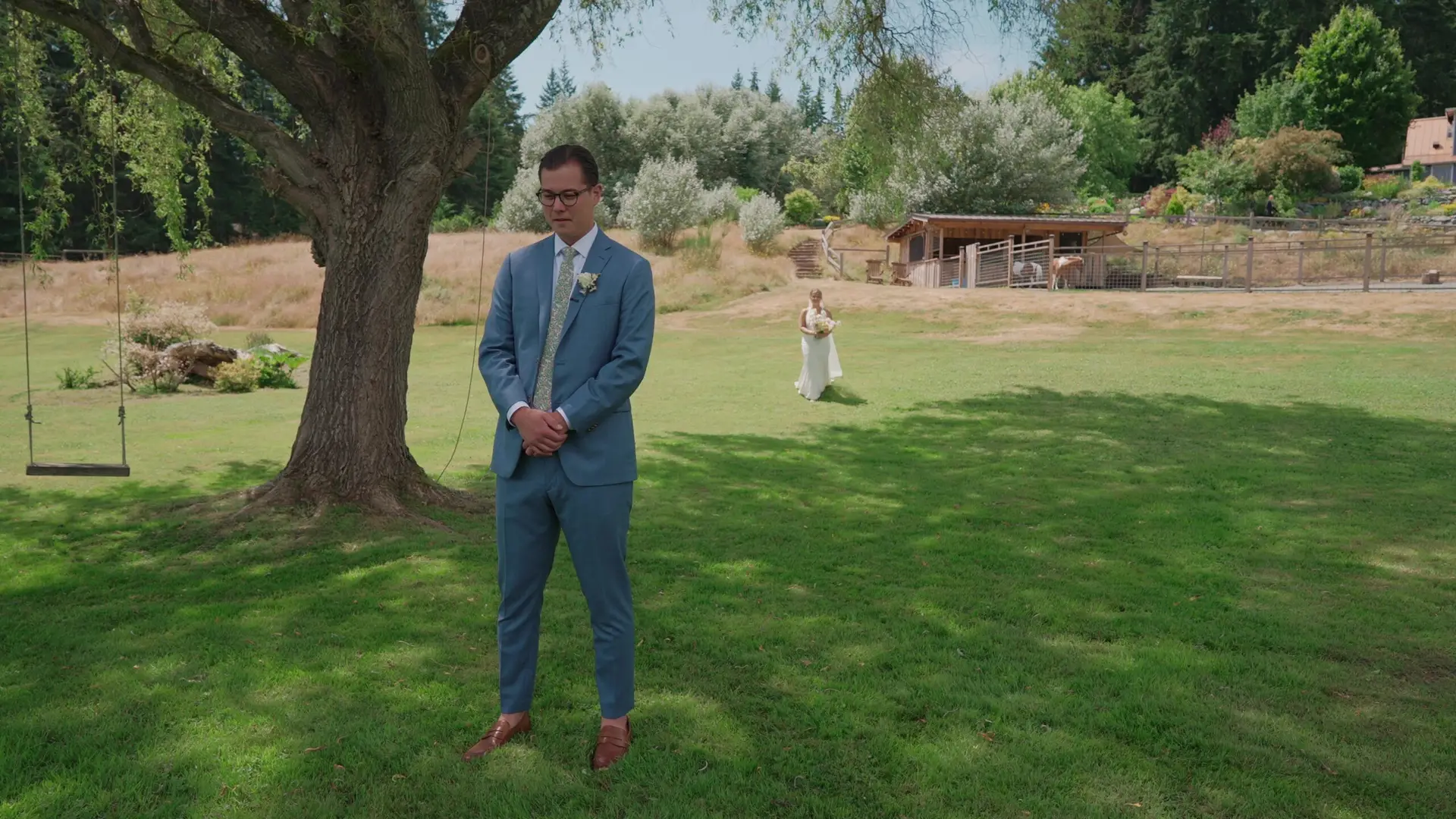
Mid-Range Professional Photographers ($3,000 – $6,000)
This is the bread and butter range for experienced professionals in Oregon and Washington. Photographers in this bracket typically have several years of experience, a strong portfolio of weddings, and a well-oiled business.
What to expect: Generally, full-day coverage (8+ hours) is standard, often with timeline assistance and planning help leading up to the day. Many mid-range photographers include an engagement session in their packages, as well as perks like an online gallery for easy sharing, and a certain level of retouching on your images. You can expect professionally edited images that reflect the photographer’s artistic style. Some in this range include a second shooter automatically, others will have it as an optional add-on. It’s common to receive between 600 and 800+ final images for an all-day coverage, though numbers vary. Photographers charging roughly $4,000 or $5,000 are usually quite skilled; they command those fees because they consistently deliver gorgeous results and top-notch service. In Portland, for example, couples should expect about $3k–$7k for an experienced photographer.
Luxury Photographers ($6,000 and up)
At the luxury end, photographers often offer extensive coverage, multiple shooters, premium albums, and customized experiences. These photographers are often sought after for their fine art style, editorial quality, and ability to capture emotional moments with exceptional creativity.
What to expect: Full-day or multi-day coverage, rehearsal dinner and day-after shoots, high-end albums, and personalized client service. You may also find offerings like drone photography, film photography, and cinematic wedding films bundled in. These photographers often limit the number of weddings they take per year to ensure the highest quality and attention to each client.
Why Investing in a Professional Wedding Photographer is Worth It
Your wedding photos become treasured family heirlooms that capture the joy, emotion, and fun of your big day. Many couples say their biggest regret is not investing enough in professional photography. Here’s why hiring an experienced photographer matters:
- Anticipating Emotional Moments: Experienced photographers know how to capture tears, laughter, and candid moments with skill and sensitivity.
- Creating a Stress-Free Timeline: They help plan your wedding day timeline to avoid rushed photos and ensure smooth transitions.
- Backup Systems & Reliability: Professionals have backup cameras, memory cards, and storage solutions to protect your images.
- Capturing Details You Might Miss: From décor to candid interactions, professional photos preserve memories you might otherwise forget.
- A Seamless Experience: The right photographer feels like a trusted partner, making your wedding day more enjoyable.
How to Search for the Right Wedding Photographer
When searching for your wedding photographer, consider these tips:
- Start your search early, ideally 9-12 months before your wedding date.
- Look for photographers whose style matches your vision, whether documentary, editorial, or fine art.
- Read reviews and ask for full galleries from past weddings.
- Meet or video chat to ensure good chemistry with your photographer.
- Discuss your wedding date, venue, and any specific needs like accommodations or travel.
- Confirm payment terms, including deposit and remaining balance schedules.
Final Thoughts
Choosing the right wedding photographer is one of the most important decisions in your wedding planning process. Your photos will be the lasting memories you and your family cherish for decades. By understanding how much a wedding photographer costs, what influences pricing, and what to expect at various budget levels, you can make an informed choice that fits your wedding budget and vision.
If you’re hosting your wedding in Oregon, Washington, or beyond, and want a professional team that offers both photography and videography with a fine art, documentary style, we’d love to chat. Contact us today to start planning your unforgettable wedding memories.
